Chinese online scammers are using stolen money to buy luxury Sydney real estate
When you lose money to a scam, most of it disappears into a black hole. But some of it has been traced and it’s truly chilling where it ends up.
Chinese online scammers are using the money fleeced from unsuspecting Aussies to purchase multimillion-dollar mansions in some of Sydney’s most prestigious suburbs.
Leading scams and transnational organised crime expert Erin West said she learnt of the criminals’ disturbing foray into the property market in recent meetings with the Australian Federal Police (AFP).
“I heard they were familiar with $10 million houses that some of these criminals own in luxurious areas of Sydney. They come in private planes and purchase $200,000 of luxury goods,” Ms West, a retired US-based prosecutor who now chases cyber criminals full-time through her private practice, told news.com.au.
“So they’re buying out real estate under Australians and Americans,” she said.
While the AFP wouldn’t comment specifically on this case, a spokesperson confirmed to news.com.au that “criminal groups use money laundering organisations to move and legitimise illicit profits, exploiting and distorting legitimate markets and economic activity”.
“Investment in the property market is one element of this,” the spokesperson said.
Ms West’s insights – and those of Australian private investigators Ken Gamble and Dan Halpin – give a fascinating and terrifying insight into how these nefarious global scam syndicates operate and how difficult it is for Australians to protect themselves from these sophisticated outfits.
That’s why news.com.au is launching People Before Profit, calling on the federal government to make it mandatory for banks to compensate scam victims – just like in the UK. In October last year, the UK introduced world leading legislation making compensation mandatory for scam victims within five business days except in cases of gross negligence.
IT’S TIME BANKS PUT PEOPLE BEFORE PROFITS. SIGN THE PETITION HERE.

MORE: How to protect yourself from rental scams
Scams became markedly more frequent with the arrival of the Covid-19 pandemic – and there’s a sinister reason why.
With international borders closed, gangs of transnational criminals couldn’t ply their usual trade – human trafficking – and had to get creative.
“They could no longer do those activities,” Mr Gamble, the head of private investigation firm IFW Global, told news.com.au.
“So they turned their attention to online scams.”
And it soon became evident that this was a less risky and far more lucrative endeavour, one that has rapidly become a sophisticated and highly-organised multi-billion industry.
In the last 12 months, scammers stole about $US1.03 trillion ($A1.65 trillion) globally according to the Global Anti-Scam Alliance. In the most recent reporting period, Australia lost $2.74 billion, the ACCC reported.
Have you been scammed? Get in touch | alex.turner-cohen@news.com.au
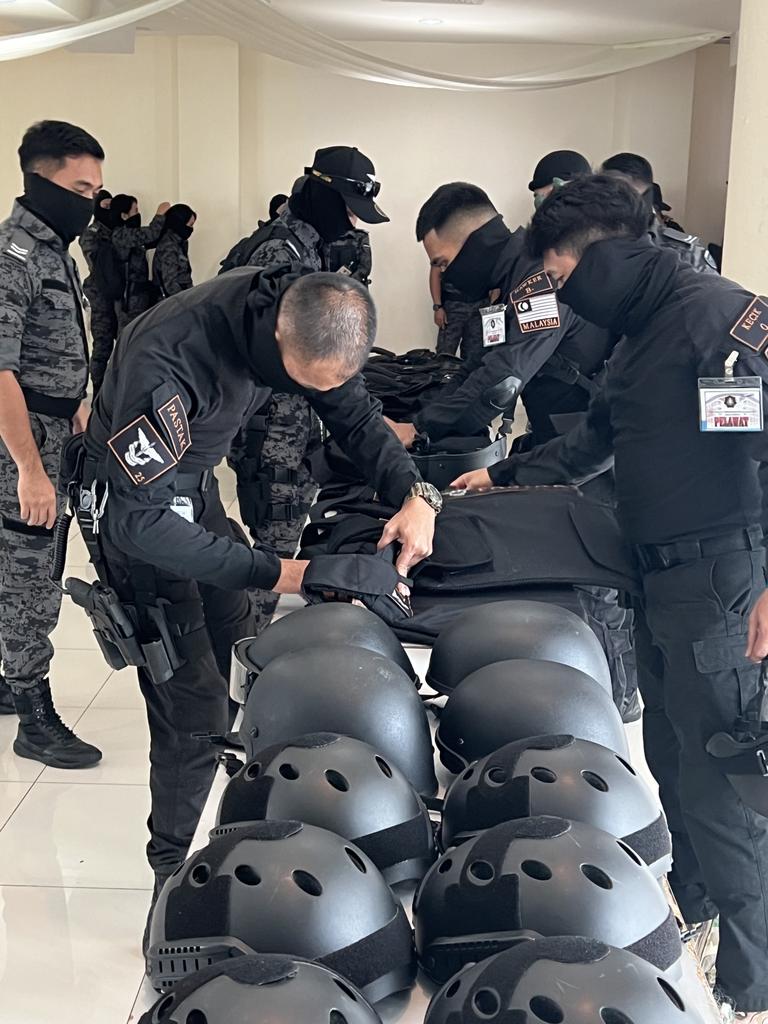

MORE: How to avoid real estate scams
‘Scam pits’
Organised crime bosses create call centres, or boiler rooms, where they can perpetuate these scams.
Eastern Europe or south east Asia are the best places to start them because of murky extradition laws and authorities willing to turn a blind eye.
Cambodia in particular is a popular choice, with Mr Gamble referring to it as a “scam pit”.
Ms West, a retired California prosecutor, has gone on to create her own consortium fighting cyber crime called Operation Shamrock, and had a scathing outlook on the nation.
“Chinese organised criminals, part of the Triad, have set up in Cambodia where their illicit activities make up 50 per cent of the Cambodian GDP,” she told news.com.au.
“With the embedded corruption in Cambodia, they are operating flagrantly. The Cambodian government will deny that, but that is what’s happening.”
In November last year, Ms West travelled to Cambodia and filmed herself across the road where a KK complex – one of the most notorious scam syndicates – is under construction.
She said it was non-stop, with large supply chain vehicles and cement trucks coming in and out every minute.
“The other bulk of it is happening in Myanmar (where) there’s a civil war going on so it’s lawless,” she said.
Despite the death and destruction in Myanmar, she noted the scam compounds are “untouched” because of the sheer amount of money coming out of them.
Most of the people manning the phones in these scam centres are slaves, lured from elsewhere in Asia or as far as Africa.
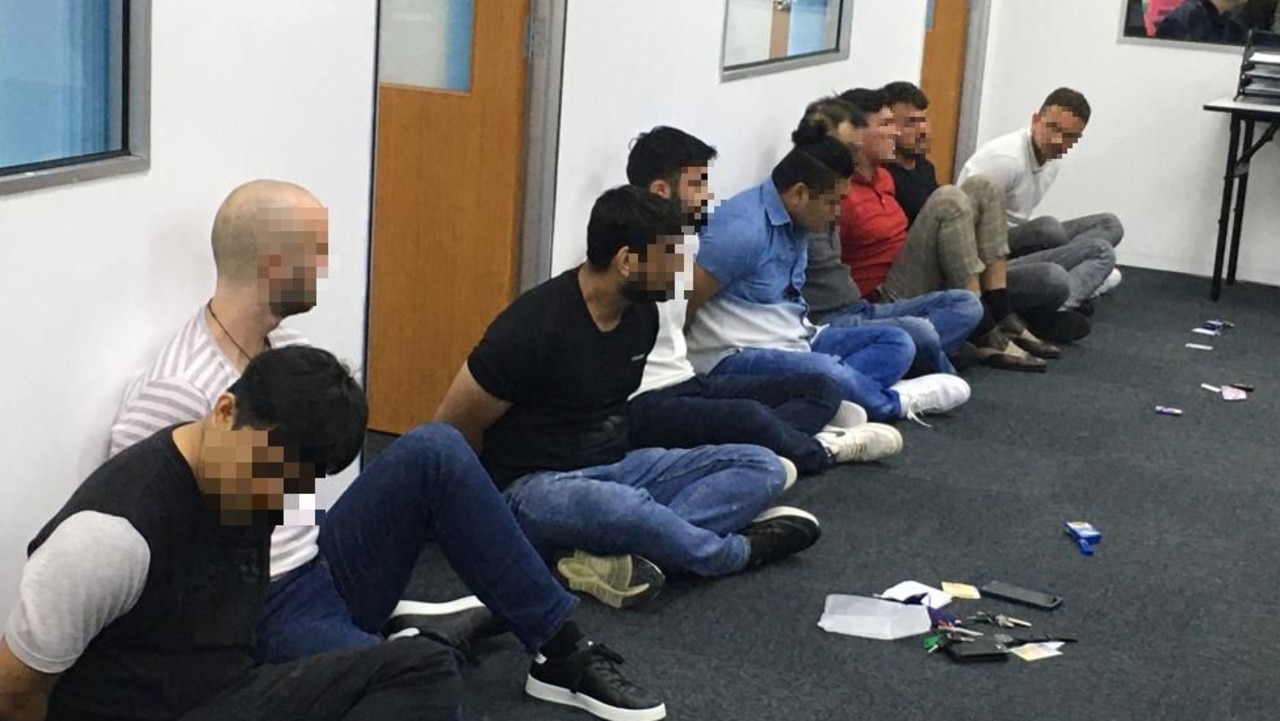
The US Institute of Peace estimates up to 300,000 people are forced into scamming others around the world by these criminal groups.
Others are on drugs and a few are even small-time criminals looking to make a quick buck.
“There are definitely people who are not human trafficked in the compounds because they find this a lucrative way to exist quite frankly,” Ms West said.
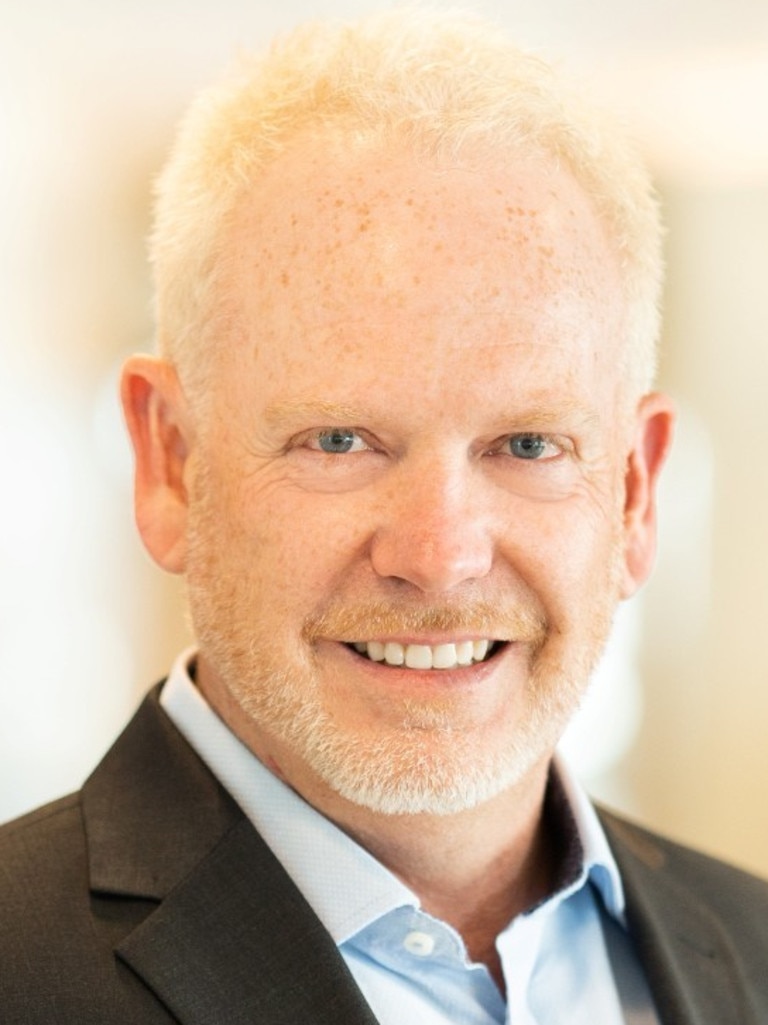
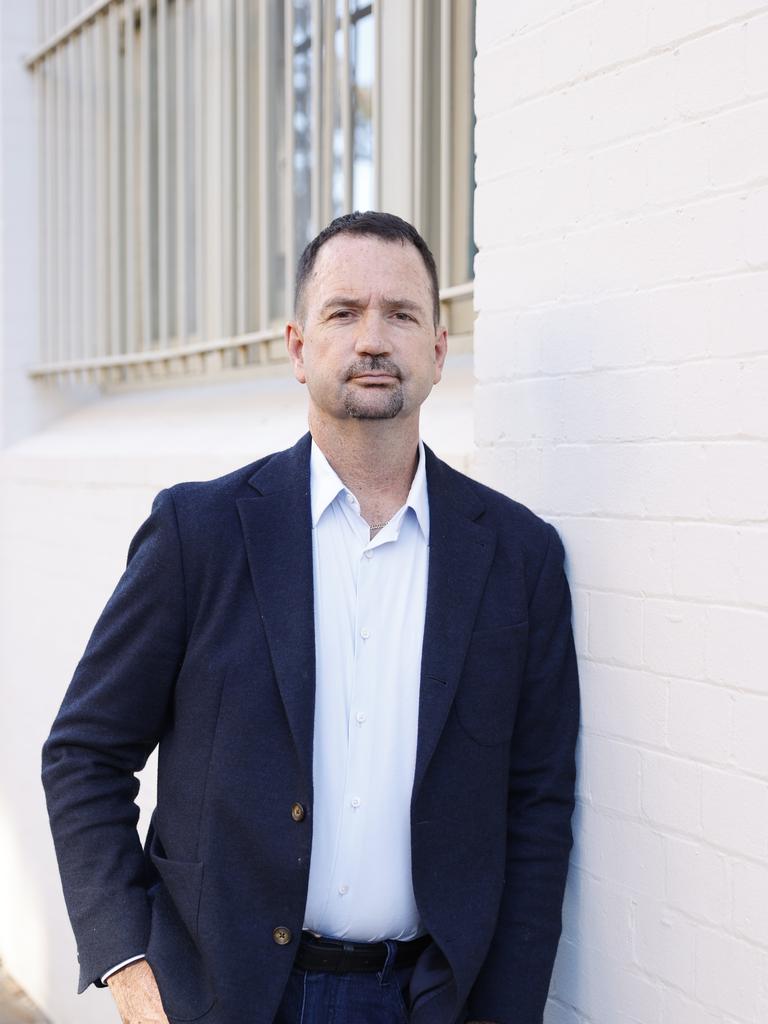
Perfect hunting ground
Sydney man Ted Moxon thought the muffled voices he could hear on the other end of the phone was a good thing.
He believed he was talking to a customer service agent at a trading firm, where he had staked around $700,000 of his fortune and seen his investment swell exponentially. 
“There was a lot of noise going on in the background. It was (obviously) a call centre. I could hear other voices,” the recent widower told news.com.au.
But he would soon learn he was in fact talking to a scammer calling from a call centre oozing with fraudsters based in eastern Europe or south East Asia and would never see his money again.
Mr Moxon was totally cleaned out by the scammers, and the 85-year-old had to resort to collecting cans around his neighbourhood to pay for his bills and food. He had to limit himself to spending $100 a fortnight to get himself back on his feet.
He begged the scammers to release his money so he could afford a hospital bill but they didn’t relent.
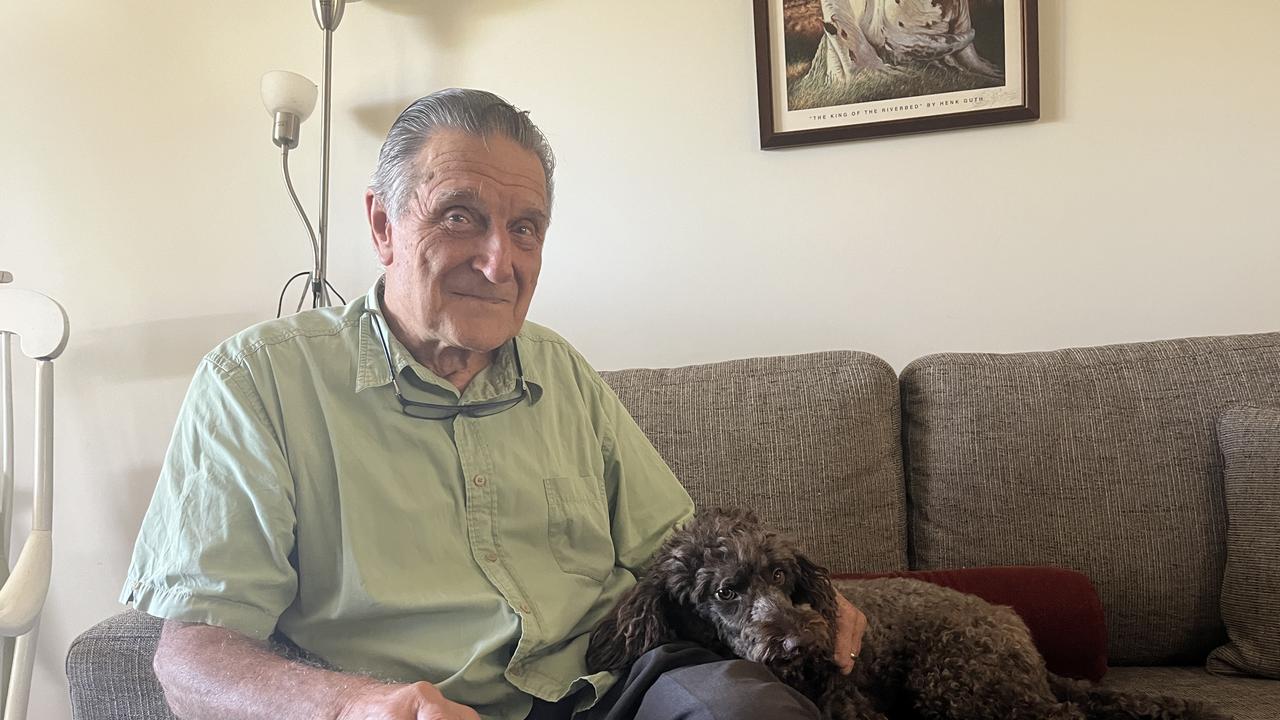
These cyber criminals target Australians like Mr Moxon, New Zealanders and Canadians more than any other nations in the world, according to Australian private investigator Mr Gamble.
That’s because those citizens are seen as rich and trusting, with authorities who will do little to pursue the criminals.
“We are the number one country targeted in the world officially,” Mr Gamble said.
“It’s common knowledge among the (scam) industry across the world, Australia is a rich wealthy country full of people who are trusting and honest. (It’s the) perfect hunting ground for scammers.”
Germany and the US are usually avoided, as their police have more of a reputation of tackling scammers, especially after Israeli citizen Lee Elbaz was arrested during a holiday in New York for her involvement in a cryptocurrency scheme that defrauded three Americans.
She ended up being sentenced to 22 years in prison.
Israeli-run call centres have been found with signs warning their operatives not to call US phone numbers to avoid the same fate.
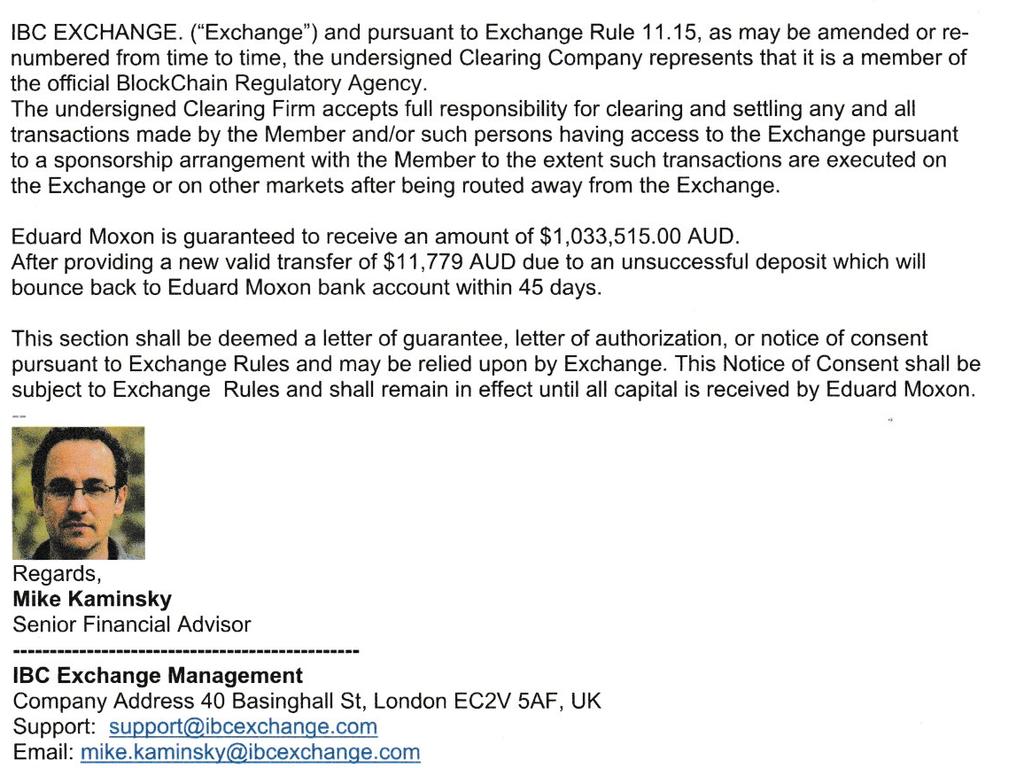
Laundry services
Moving money is a huge part of how the scams work – and it’s moved the same way drug money is laundered.
“It’s a very sophisticated system,” Ms West said. “If it weren’t so sophisticated, we would have taken it down by now.”
After scammers in these call centres get the cash from their victims, the next step is “washing” the money so it’s untraceable – and, according to experts, these ‘laundry services’ are mostly based in Hong Kong.
First, the stolen funds are sent to a money mule in the same country where the victim lives.
Money mules are low hanging fruit in the organisation. Some are coaxed into opening accounts for money, while others are tricked. Some bank accounts are opened using stolen identities so it can’t be linked back to a scammer.
According to Mr Gamble, in Australia, a common way for scammers to gain control of an Australian bank account is by buying it off an international student returning home.
The funds are then laundered “through a dozen or so cryptocurrency wallets” before landing in the account of a money mule in Hong Kong, who transfers it on, taking a cut for themselves.
HTX, a cryptocurrency exchange based in Hong Kong, is an extremely popular platform, that is popular with scammers, Mr Gamble said.
Jonno Newman, an investigator at crypto tracing company TRM Labs, said Hui One is also another popular platform for scammers.
The Cambodian payments company, linked to the country’s ruling family, made headlines in 2016 for accepting $150,000 from North Korean hacker group The Lazarus Project.
More recently, in July last year, UK cryptocurrency analysts Elliptic called out Hui One for prolific advertising on its platform offering to move and exchange money.

Israeli criminals and Chinese triads
Dan Halpin, chief executive of Australian firm Cybertrace, along with Mr Gamble, believe that Israeli criminals mostly run the investment scams.
Israelis used to operate Binary Options investments but this was outlawed in Israel in 2017 after being deemed mostly a sham.
As a result, many of them went underground. Both men estimate that 80 to 90 per cent of crypto and investment scams originate from Israeli criminals.
“We have seen some cases where the Israelis are based in the host country, most of the time they’re in Israel,” Mr Halpin said.
“80 per cent of investment scams are Israeli. The Israelis like to suck in the big fish, they call them whales.
“They’re the big losses. The Nigerian romance scammers, the Chinese job scams are smaller losses but higher frequency.”
Meanwhile, the Chinese Triad operates “pig butchering” love scams, a reference to fattening up a victim before they are metaphorically “slaughtered” by taking all their money
In this case, the phrase refers to the fact that victims are romanced by scammers, then milked of all the money they are worth.
British gangsters “exclusively” operate term deposit and shares scams.
And what do they spend the money on?
Once the money ends up in the hands of criminals, they’re smart – they invest it, often in legitimate ways, and that involves property.
Authorities have observed cases where the scammer takes out money in a cashier cheque made out to a third party agency that holds onto funds, allowing them to quite easily and directly purchase real estate.
“One major player in Belgrade owned an entire unit complex,” Mr Halpin said.
“In Israel they get taxed very heavily for luxury cars. Then they (scammers) find other ways to spend that money (like) property investments.”
Mr Gamble echoed this, noting that criminals created sprawling, legitimate property empires, as well as splashing on more flashy items like luxury boats in Barbados.
“These are crime bosses. These are criminal corporations who own hotels, who own restaurants, who own property developments,” he said.
“They own portfolios. This is organised crime at a very high level.”
And as Ms West revealed, closer to home, scammers are also finding ways to squeeze their way into Australia’s lucrative real estate market.
But some criminals go a step further – using their money to bankroll other scam operations.
More Coverage
“I’ve even heard some of them are bankrolling the Russian oligarchs,” Mr Halpin said.
“We thought it was the other way around. The Russians are using them (these scam syndicates) for financing if they can’t get money anywhere else. Because they’ve got so much money they’ll loan it to other criminals.”
alex.turner-cohen@news.com.au






